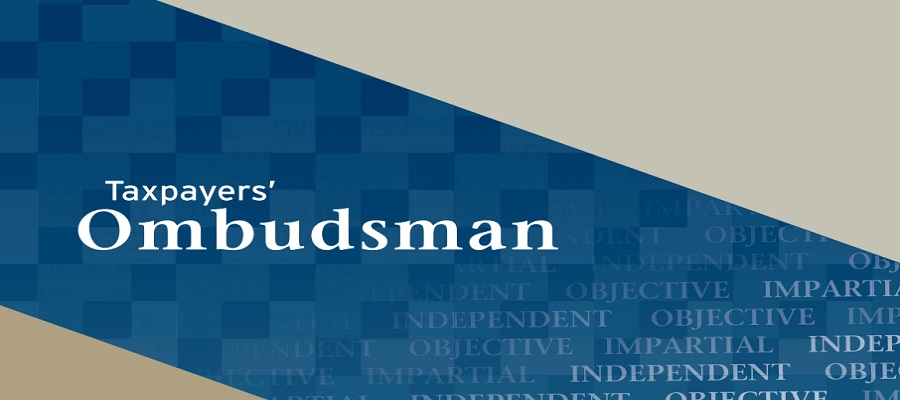News
Microsoft Flays Action against Software Piracy in Nigeria
Microsoft has announced that a series of raids have taken place in the past month in an attempt to crackdown on software piracy in the country.
The Nigerian Copyright Commission, in conjunction with the Nigerian Police Department, has conducted raids on four computer resellers suspected of selling counterfeit software to consumers in Nigeria since 3 November 2009.
Mystery shopper investigations revealed that two of the resellers deal in counterfeit software with high quality packaging, difficult to differentiate from genuine software even to the most experienced computer user.
In addition to these enforcement activities, Microsoft also hosted piracy training in Nigeria for law enforcement agents. These trainings are designed to ensure that law enforcement officials in Nigeria are armed with the necessary technical knowledge and awareness of the importance of intellectual property to ensure software piracy is tackled head on.
This announcement forms part of Microsoft’s “Consumer Action Day,” a simultaneous launch of education initiatives and enforcement actions in more than 70 countries worldwide to protect consumers and increase awareness of the risks of using counterfeit software.
The company also announced a surge of voluntary reports of more than 150,000 in the past two years from people who unknowingly purchased counterfeit software that was often riddled with viruses or malware. This increase, more than double the amount of previous records, reflects growing concern for the harm caused by counterfeit software and Microsoft’s efforts to give people a voice in the fight against software counterfeiting.
In addition to the actions and initiatives taking place in Nigeria, other global activities include an intellectual property rights education program in schools across China, an “originals club” for software resellers in Germany, a risk-of-counterfeit training course for the consumer protection authority in Mexico, a children’s online safety program in Greece, and a study of piracy’s impact on small and medium businesses in Argentina.
An interactive map detailing these efforts around the world today can be found at www.howtotell.com.
“Consumers want action,” said Emmanuel Onyeje, country manager for Microsoft in Nigeria. “Consumers who are duped by fraudulent software encounter viruses, lose personal information, risk having their identities stolen and waste valuable time and money. Today’s announcement demonstrates Microsoft’s commitment to working with others, including our partners and government agencies, to protect people from the ill effects of counterfeit software.”
The software industry has long studied the black market for pirated software and its effects on consumers. One study by the International Data Corporation (IDC) in 2006 showed that one in four Web sites offering counterfeit software attempted to install unwanted or malicious code upon downloading. The IDC report also described a review of counterfeit Microsoft software purchased at resellers in 17 countries: one-third of the disks could not be installed due to malware and other vulnerabilities. And, just two months ago, the October 2009 Internet Piracy Report from the Business Software Alliance (BSA) showed countries with high piracy rates often have high malware infection rates.
The effects of malware can range from annoying advertisements to a severe breach of information security. Moreover, most people simply find themselves without the software they thought they were paying for. Unable to get a refund from the dealer, consumers end up having to purchase the product all over again.
“The bottom line is that software piracy is a crime that has far-reaching consequences,” said Mr. Orlando Odejide of GV4, a Microsoft partner operating in Nigeria and Ghana.
“Using the various tools and websites on the Internet to find a quick and cheap way to steal software can turn out to be detrimental and dangerous to your personal information and your business. Is this really a risk that you’re willing to take?” asks Mr. Odejide.
Today’s actions around the world including Nigeria emphasize Microsoft’s growing commitment to protect consumers.
On the engineering front, Microsoft has improved the product activation and validation process with Windows 7. Windows Activation Technologies in Windows 7 are built off our Software Protection Platform introduced with Windows Vista, which enables Windows to protect itself by detecting when attempts have been made to circumvent or tamper with built-in product activation technology and helps customers to easily activate the product and resolve potential issues.
Windows 7 includes the latest generation of this technology, including changes we have made so users will see more informative notification messages and be able to more easily complete the steps in the process.
Tips from customers and partners are vital in helping Microsoft address piracy. Microsoft encourages anyone who receives suspicious software to contact their local Microsoft office. More information about genuine Microsoft products, licensing and labels is available at http://www.howtotell.com suspected piracy can also be reported via this site.
News
FG Okays Biometric Upgrades @ Airports, Others

Federal government has a contactless biometric passenger verification system linked to the National Identification Number (NIN) across all airports in the country to tackle identity fraud and enhance security.

Festus Keyamo, minister of Aviation and Aerospace Development,
Festus Keyamo, minister of Aviation and Aerospace Development, announced this on Thursday, while briefing State House correspondents after the Federal Executive Council (FEC) meeting in Abuja.
“Too many people board aircraft using fake identities. This system will confirm passengers are who they claim to be,” Keyamo said.
The minister also said that the Council also ratified contracts under the 2024 budget to install airfield lighting at select airports so they can operate into late evening hours, helping airlines improve revenue.
“Some airports shut by 6 p.m. because they lack lighting. This upgrade will allow operations till 10–11 p.m.,” he noted.
Keyamo appealed to aviation unions to support ongoing reforms, stressing that while he remains pro-labour, “unions will not dictate government policy.”
Keyamo said the directive overrides interpretations linked to previous administrations’ asset disposal programmes, stressing that FAAN properties are strategic national assets that must remain under government control.
He explained that essential personnel, including firefighters and navigational officers, are required to reside within airport precincts to ensure rapid emergency response, making the retention of these facilities critical.
“We will not concede any of these properties to private individuals. Anyone who believes they have purchased such assets should take note,” he said.
The minister added that FEC granted eight approvals for the aviation ministry, covering airport safety, technology upgrades, concessions and security enhancements.
These include contracts for maintenance and support services for Aeronautical Information Management (AIM) solutions across five international airports — Abuja, Lagos, Kano, Port Harcourt and Enugu.
Council also approved the deployment of advanced Terrestrial Trunked Radio (TETRA) power systems nationwide, along with 14 VHF remote communication systems for the Nigerian Airspace Management Agency (NAMA) to boost navigational safety.
To meet International Civil Aviation Organisation (ICAO) standards, FEC endorsed the purchase of 15 airport rescue and firefighting vehicles for the five major international airports.
Keyamo further announced that NAMA, currently operating from rented offices in Abuja, will now have a purpose-built headquarters in the capital.
News
Lassa Fever’s Death Toll in Nigeria Hits 176- NCDC

Nigeria Centre for Disease Control and Prevention (NCDC) has reported that at least 176 people have died from Lassa fever across 21 states in 2025.

According to the NCDC; Ondo, Bauchi, Edo and Taraba remain the epicentres of the outbreak, accounting for 88 per cent of all confirmed cases recorded so far this year.
In total, Nigeria has recorded 955 confirmed cases from 8,367 suspected infections.
While confirmed cases are fewer than those seen in 2024, fatalities have increased.
This year’s case-fatality rate (CFR) is 18.4%, compared to 16.6% during the same period in 2024.
NCDC said the deaths are likely due to poor health-seeking behavior among patients who seek medical intervention too late, as well as poor environmental sanitation in affected communities.
Eighty-eight percent of all confirmed Lassa fever cases were reported from four states (Ondo, Bauchi, Edo, and Taraba), while 12% were reported from 17 states. Adults ages 21 to 30 years report the most infections.
Lassa virus is endemic in West Africa and spreads via contact with the urine or droppings of infected rodents.
Though not common, the virus can be transmitted person-to-person through direct contact with a sick person’s blood or other body fluids, mucous membranes, or sexual contact.
News
Tax Ombudsman is to Protect Businesses from Harassment—Oyedele

Taiwo Oyedele, chairman of the Presidential Committee on Fiscal Policy and Tax Reforms, has said that the creation of a new office of the Tax Ombudsman (OTO) is to protect businesses from harassment.

Dr. John Nwabueze, Nigeria’s tax ombudsman
Oyedele, who spoke Sat the 24th Annual Conference of the Women in Management, Business and Public Service (WIMBIZ) held in Lagos, said that the Tax Ombudsman, will serve as an independent body to mediate disputes and safeguard the rights of taxpayers.
“If anybody shows up to harass you, to collect tax, or to seal up your premises, you can call the Tax Ombudsman. They have the legal authority and obligation to protect your rights,” he stated.
Oyedele said that the new tax regime will favour compliant and formalised enterprises while protecting small and informal businesses from undue pressure and harassment by tax officials.
He said that the ongoing reforms are people-centred and designed to reward compliance, promote fairness, and support economic growth rather than overburden citizens or businesses.
During a panel session themed “The New Tax Law and You,” Oyedele urged entrepreneurs, especially small business owners, to formalise their operations to benefit from a range of incentives embedded in the new tax framework taking effect from January 2026.
“We started the tax and fiscal reform by looking at how people do business, how those businesses grow, and how finance is placed,” he explained. “You can’t knock on the door and say, ‘Tax me.’ Let’s have a conversation on how to create a business that can pay corporate tax. So, the reforms are people-centric.”
According to Oyedele, small companies with an annual turnover of ₦100m or less will enjoy a zero per cent corporate tax rate, in line with the government’s goal of allowing small businesses to expand before being taxed.
“If you run a small company where your annual turnover is ₦100m or less, your corporate tax rate will be zero per cent. What is even more interesting is that the Corporate Affairs Commission (CAC) will register 250,000 small companies free of charge,” he disclosed.
He also revealed that the reforms would ensure fairness in value-added tax (VAT) administration, adding that critical sectors such as food, water, education, pharmaceuticals, and medical services will be fully exempted from VAT from next year.
“From next year, January 1, this bottle of water will be zero-rated for VAT. The same explanation applies to food, education, pharmaceutical, and medical services,” he said.
Oyedele explained that the government’s decision to exempt essential goods and services from VAT was informed by data showing that low-income Nigerian households spend nearly 80 per cent of their income on food, health, rent, education, and transportation.
“If people spend their entire income on five basic items, food, education, health, rent, and transport, then we must remove the taxes on those,” he noted.

 E-Financial2 days ago
E-Financial2 days agoZachXBT, Crypto Investigator Lists Nigeria, Others as Worst Jurisdictions for Scam Victims

 Telecom2 days ago
Telecom2 days agoFUNAAB 500-Level Student Wins 5th Brand New Car at MTN Pulse Campus Invasion

 Telecom2 days ago
Telecom2 days agoEricsson, MTN Nigeria Boost Network With New Tech

 Telecom2 days ago
Telecom2 days agoLagos to Launch Automated Telecom Permit System by 2026

 News2 days ago
News2 days agoFG Taps John Nwabueze as First Tax Ombudsman

 E-Business2 days ago
E-Business2 days agoReport Reveals DLL Hijacking Attacks have Doubled since 2023

 Telecom2 days ago
Telecom2 days agoGlo Unveils New “Glo Collabo Bundles,” Offers More Value for Less

 E-Financial2 days ago
E-Financial2 days agoFirms Eye Fintech Model for Insurance















